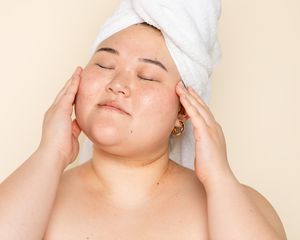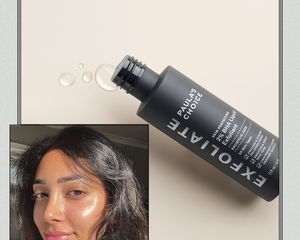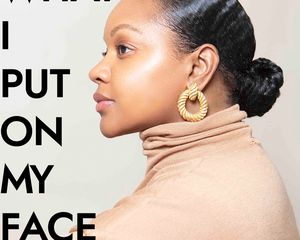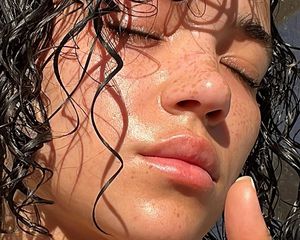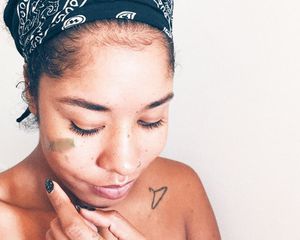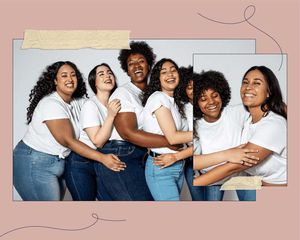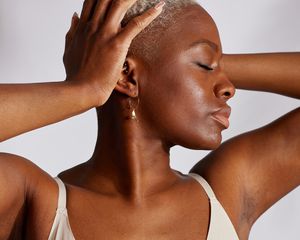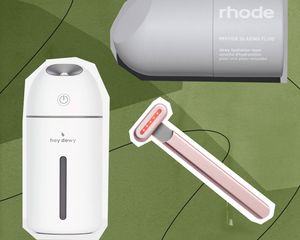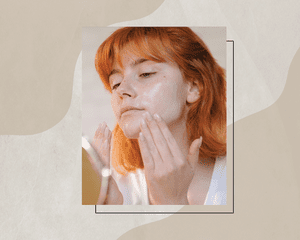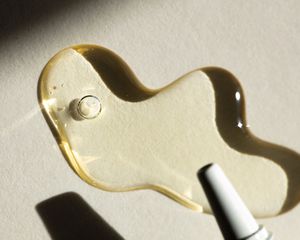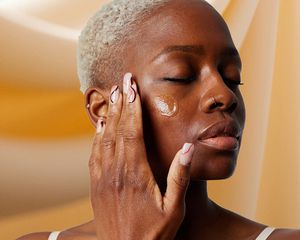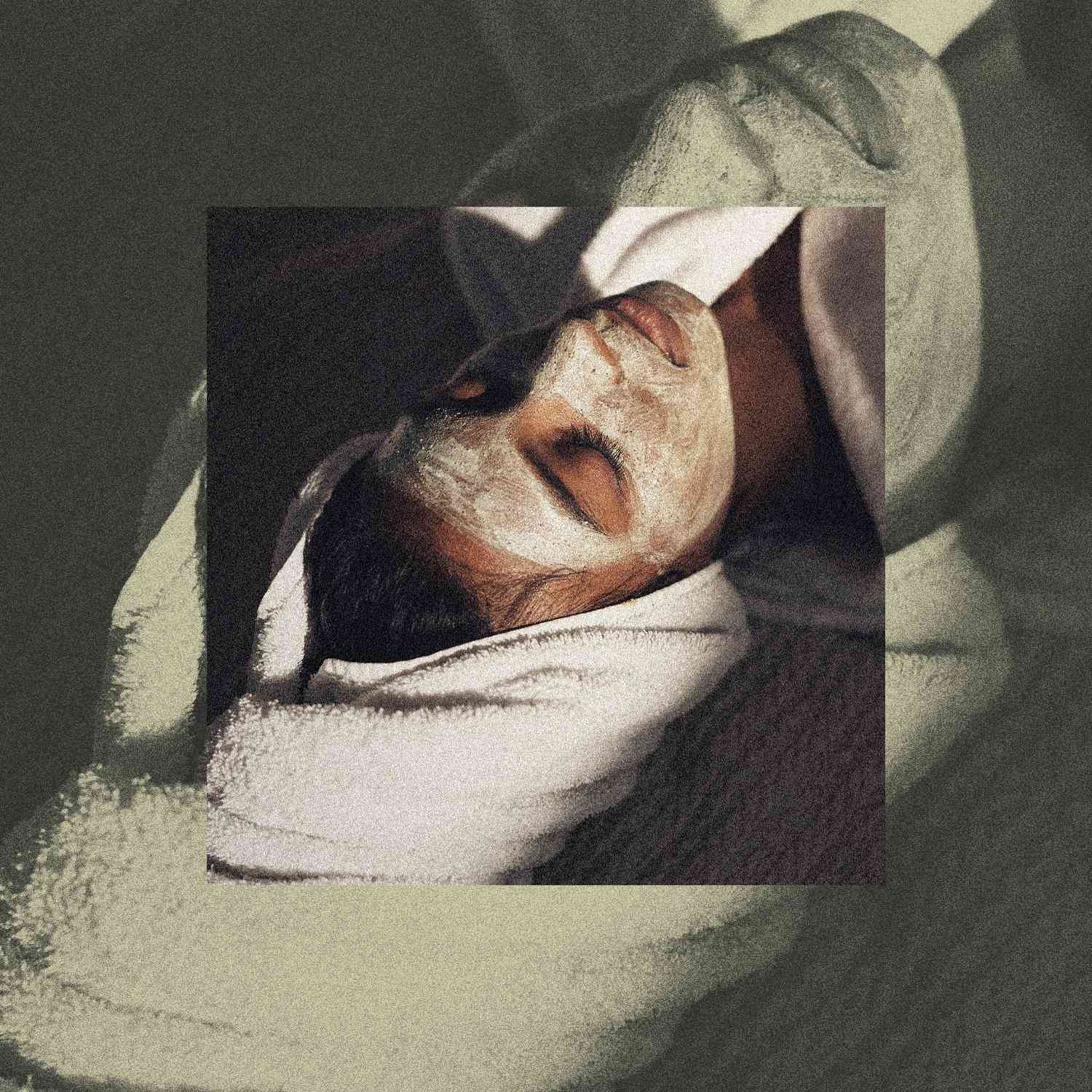
Getty/Design by Tiana Crispino
Taking care of skin can require a ton of work. Going above and beyond for your complexion, whether you’re working with a multi-step routine, have a standing appointment with your derm or esthetician, or can’t resist the siren call of the latest new active, can be equal parts expensive and time-consuming. And people are over it.
Just like the quiet quitting phenomenon hitting the workplace—a phrase popularized by Zaid Khan in a TikTok video—coasting is coming for your skincare routine. Quiet quitting, for the uninitiated, means opting out of hustle culture and instead doing the bare minimum at work, whatever that may be. It’s about sticking to your job description and avoiding toxic (and outdated) expectations to be "on" beyond the 40-hour work week. And more and more people are applying that thinking to skincare—in other words, doing less. Unlike a skin fast, which entails ditching your routine cold turkey, quiet quitting involves scaling it back to a few essential products and nothing more.
Part of its appeal is psychological—and might have something to do with the COVID-19 pandemic, during which, as research found, interest in makeup declined while investment in skincare skyrocketed (probably due to all of our newfound time at home to buff, peel, and slather). However, “eventually, people realized that skincare trends don’t work on everyone and you have to customize the routine based on your skin type,” says David Kim, MD, a board-certified dermatologist at Idriss Dermatology in New York City. “Also, there are only so many layers of skincare you can put on at once.”
It can also just seem a little pointless at this late stage of the pandemic. “Many are questioning the pace with which they once worked and played,” says New York City psychologist Vivian Diller, Ph.D. “Even regarding beauty routines, women seem to question the need for the kind of upkeep they once took for granted.” That’s especially true if you’re not seeing the results you want. If your skin isn’t where you want it, why bother sticking with elaborate steps and shelling out for laser treatments?
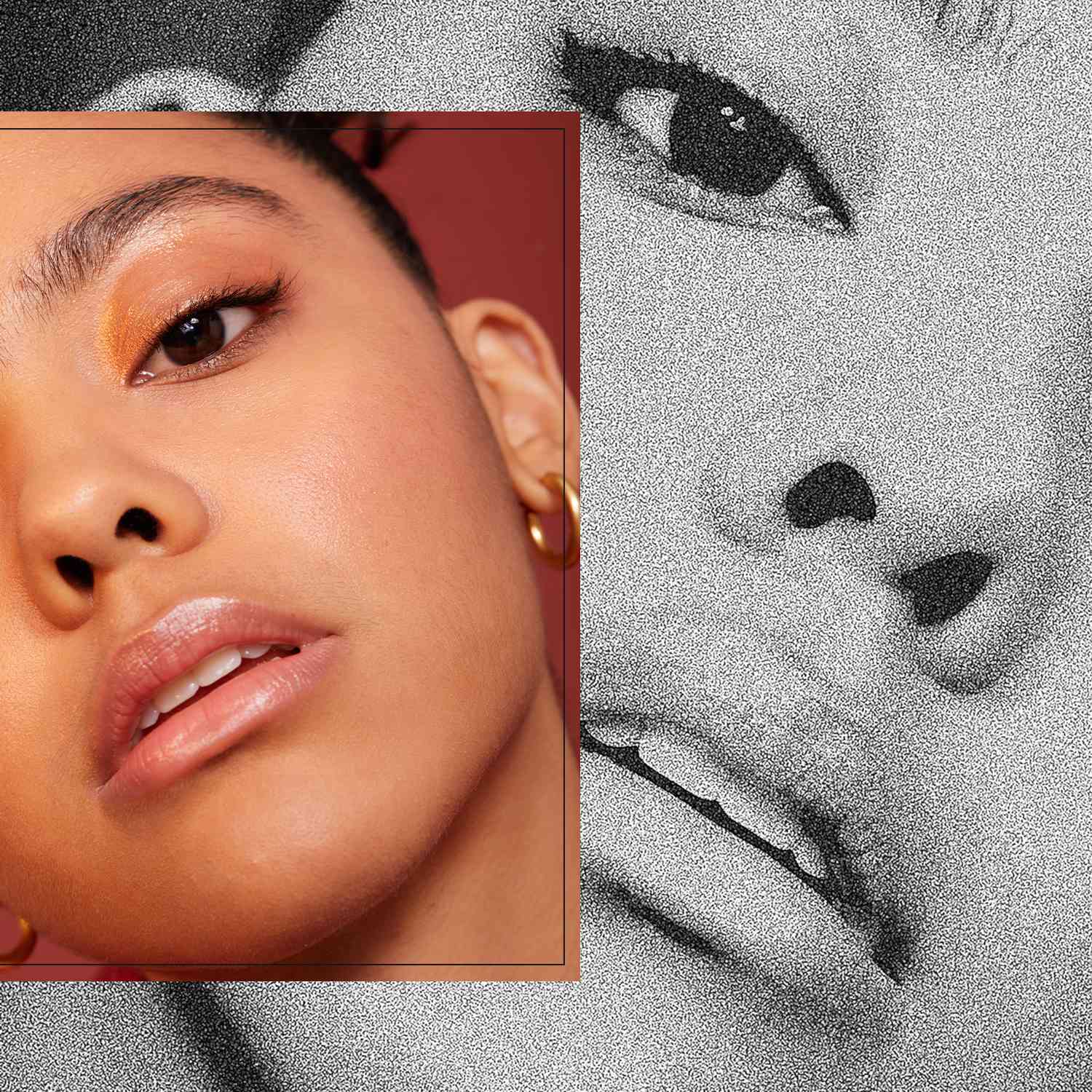
Getty/Design by Tiana Crispino
Then, there’s the physical advantage of quiet quitting your skincare routine. For background, the combo of social media and good, old consumerism has led to something of a skincare frenzy. “These days, it’s all about having the latest skincare product or hopping on the newest viral beauty trend—and it seems like consumers are being urged to add something new into their skincare routines constantly,” says San Diego, CA board-certified dermatologist Melanie Palm, MD.
Partaking in every trend to hit your #ForYou page can have very real consequences. Take freelance writer Afoma Umesi, who at one point was using at least five products from The Ordinary, a brand best known for its single-ingredient formulations. Glycolic acid and niacinamide were in the mix—along with three cleansers, a vitamin C serum, moisturizer, and sunscreen. “I knew it was too much when I needed an app to keep track of what I was applying every evening,” she says. “There were so many actives that my complexion was changing drastically.”
Not surprisingly, there’s a fine line between keeping up with the trends and sensory overload. And, as a result, “this oversaturation of skincare products and beauty trends can make a simplified, pared-down skincare routine appealing to individuals who might feel overwhelmed and confused about what to use,” says Dr. Palm.
Plus, some people just don’t need them. “I no longer really have a need for a face moisturizer—people are always shocked when they hear this, but I feel like the ingredients and textures of the products I have take care of the hydration component for me,” says Christa Lee, the editorial director for a beauty brand. That’s a far cry from a few years ago, when she swore by sheet masks and face oils.
I knew it was too much when I needed an app to keep track of what I was applying every evening.
As for Umesi, she noticed that her skin was looking super-shiny (a sign of over-exfoliation), so late last year, she dropped her sprawling routine, cutting it down to cleanser, moisturizer, and sunscreen. It’s since stuck. “It's easy to do, and impactful without being too harsh—and my skin looks bright and nourished,” she says. “I haven't thought of adding anything for over six months.”
The low-key life already tends to already be fairly common among those with acne- or rosacea-prone skin, says Dr. Kim, since they’re understandably more skittish about introducing new, potentially irritating formulas into their routines. (That said, those with skin conditions still benefit from a formula that targets it, he says.) The same goes for people with sensitivities. “I had one too many allergic reactions to products, so I'm wary of trying new things now,” says Lee.
Turns out, they’re onto something—and "quiet quitting" your skincare routine can actually be beneficial. That’s because “overdoing it on skincare products can often cause more harm than good, resulting in a compromised skin barrier, inflammation, breakouts, dry patches, redness, and in some cases, infection and scarring,” says Dr. Palm. “There is a benefit to giving your skin a break from certain products and following a more simplified routine, especially if you’re using a lot of actives, so it can repair its lipid barrier.” That can be a game-changer in the winter when the skin barrier is typically at its weakest. (Blame cold winter air, which holds less moisture and can therefore sap water from the skin.)
Intrigued? Both Dr. Palm and Dr. Kim recommend sticking with a cleanser, antioxidant serum, some form of hydration (be it a lotion or gel-cream), and board-spectrum sunscreen with a minimum SPF 30. You don’t have to ditch all your extra products, either; instead, you could swap them in depending on the season and your concerns. For instance, “when it’s really dry and cold out, swap the moisturizer, for example, with a thicker cream that will keep your skin protected and hydrated, so it stays supple and protected,” says Dr. Kim.
Whatever your reason for quiet quitting your skincare routine, be it either temporarily or for the long haul, a break from your regimen can give you some perspective on what works for you. “Stepping away from routine behaviors to evaluate their value is always a good idea,” says Dr. Diller. “But it'll be interesting to see if this ‘quiet quitting’ is short-lived or if it will be a new way to approach self-care.”
So far, though, quiet quitting skincare seems to, ironically enough, be going the extra mile for those who’ve tried it. As Lee puts it: “I feel like my skin is experiencing a happy place right now.”

